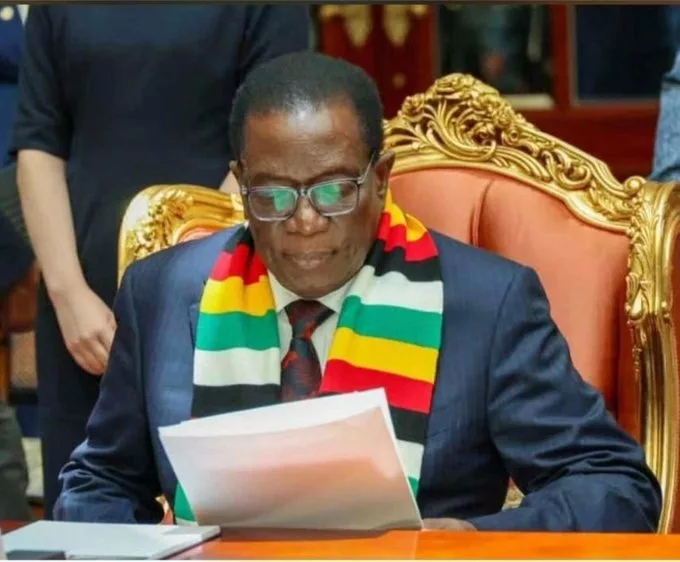By Veritas
The Government’s long-awaited Marriages Bill, which is intended to consolidate our marriage law and bring it into line with the Constitution, was published in the Gazette on the 19th July. It can be viewed and downloaded on the Veritas website[link].
Background to the Bill
Ever since the 1980s the Government has wanted to amend and consolidate the country’s marriage laws, but its ideas remained largely unarticulated. In January 2016 the Constitutional Court gave the Government a sharp prod with its judgment in a case brought by Veritas [Mudzuru & Another v Minister of Justice & Others ‒ link] in which the Court declared the marriage of minors to be unconstitutional.
SADC gave the Government another nudge later in 2016 when it published its Model Law on Eradicating Child Marriage and Protecting Children Already in Marriage [link], a document which Veritas helped to draft.
Now, after three years spent presumably in careful cogitation, the Government has produced its Bill.
Existing Law
The Bill has to be understood in the light of the current law, under which there are two distinct types of marriage that are legally recognised in Zimbabwe:
Civil marriages, which are regulated by the Marriage Act. These marriages are monogamous, which means that neither spouse can be married to anyone else while the marriage lasts. They are solemnised by magistrates and ministers of religion, and must be registered in a register kept by the Registrar-General.
Customary marriages, which are regulated by the Customary Marriages Act. These marriages are potentially polygamous, which means that husbands are allowed to marry more than one wife. For a customary marriage to be valid, roora or lobola must have been paid or agreed upon, and the marriage must have been solemnised and registered by a magistrate or a chief.
Even though both types of marriage are legally recognised, civil marriages are perceived as having a slightly higher status than customary ones. Spouses who are married under a customary marriage can “upgrade” their marriage to civil status by remarrying each other in a civil marriage, whereas spouses in a civil marriage cannot convert their marriage to a customary one.
A great many customary marriages are not solemnised or registered under the Customary Marriages Act, although the parties may have gone through all the ceremonies required by customary law. These marriages are not recognised as legal marriages by Zimbabwean law except in so far as the rights of children are concerned.
Many people contract both types of marriage: that is to say, they contract a marriage under customary law but do not register it, and then get married, often in a church, in a civil marriage under the Marriage Act. In such a case the law treats the civil marriage as valid, disregarding the customary one.
What the Bill aims to do
According to its memorandum the principal aims of the Bill are:
· To consolidate our marriage law in a single Act of Parliament rather than two.
· To bring the marriage law into line with the Constitution, particularly in regard to child marriages and gender equality.
What the Bill will do
The Bill will make four important changes to our existing law:
1. Abolition of child marriage
Marriages of boys and girls under the age of 18 will be absolutely prohibited by clause 3 of the Bill. The prohibition will extend to all types of marriage and to civil partnerships (which are dealt with below). Anyone assisting, encouraging or permitting a child to marry or to enter into a civil partnership will be liable to heavy criminal penalties ‒ and it will be an aggravating feature if the person is the child’s parent or guardian.
According to clause 42(3) of the Bill, the annulment of a marriage contracted by a child will not affect any rights the child may have acquired as a result of the marriage. The clause is not clear, but it probably means that on annulment the child will have the same rights to maintenance and division of property as a spouse has on divorce.
2. Roora or lobola
Under the Customary Marriages Act, roora or lobola is an essential element of customary marriages. A customary marriage officer is not allowed to solemnise a marriage without being satisfied that there has been agreement on the payment of roora or lobola (section 7(1) of the Act). Under the Bill this will no longer be the case. Roora and lobola will not be abolished or outlawed, but will no longer be a legal requirement for customary marriages. If parties to a customary marriage do agree on roora or lobola the Registrar will have to record the agreement when registering the marriage under clause 16(2) of the Bill. Recording the agreement in this way will make it easier to enforce because what the parties agreed to will be put beyond dispute.
3. Civil partnerships
Under clause 40 of the Bill, adult men and women who are not married to each other but who have lived together domestically will be regarded as partners in what will be known as a civil partnership. The clause does not say what the partners’ rights are during in such a partnership, but on its dissolution they will be entitled to the same remedies as spouses on divorce. Civil partnerships will be recognised even if either or both the partners are married to someone else, whether civilly or under customary law, or are in another civil partnership (clause 40(5)). It was reported in the media that spouses in a civil marriage will not be allowed to enter into civil partnerships; this is not so not so, as clause 40(5) makes clear.
The recognition of civil partnerships raises important social and moral issues that need to be debated but this bulletin will raise legal points:
· Section 56(3) of the Constitution prohibits unfair discrimination on, amongst other grounds, marital status. Clause 40 may be an attempt to raise the status of unmarried partners, both male and female, in relation to married persons.
· On the other hand, while allowing married people to enter into civil partnerships, the Bill does not touch on the question of adultery. Will a married person be entitled to divorce his or her spouse on the ground that he or she is living with someone else in a recognised civil partnership? Will a spouse be entitled to claim adultery damages from his or her spouse’s civil partner?
· Although the Bill gives partners in a civil partnership the same rights as spouses on divorce, it will not give them any rights of inheritance. This seems inconsistent: a dependent partner can claim maintenance and division of property if the partners break up, but will have no claim if his or her partner dies.
· “Civil partnership” is the name given to same-sex marriages in the United Kingdom and South Africa, though obviously civil partnerships under the Bill are not the same thing. Perhaps we should choose a different name?
The Bill’s attempt to protect those in long-term domestic relationships, especially the women who seem to suffer most on breakup, is commendable but surely there are other ways of providing protection which do not undermine monogamous civil or church marriages? To offend so many people in a largely Christian country is bound to lead to opposition to the Bill.
Other effects of the Bill
The Bill will make other changes to our marriage law ‒ for example, chiefs will no longer be entitled to claim fees for solemnising a customary marriage, and husbands will no longer be criminally liable for not having their customary marriages solemnised ‒ but the changes are fairly minor and for the most part the existing law will remain the same. For example:
· There is a statement in clause 5(5) of the Bill that civil and customary marriages registered under the Bill are equal in status, but some inequality will continue:
· parties to a customary law marriage will still be able to convert their marriage into a civil one, but not the other way round (clause 5(4)) “Upgrading” of marriages will remain a one-way process.
· Foreign marriages will be recognised in Zimbabwe if they are monogamous like civil marriages but not if they are polygamous like customary marriages (clause 43 of the Bill).
· Although the Bill says in clause 6 that spouses have equal rights in both types of marriage, husbands in customary marriages will still be able to take other wives, but wives will not have a similar right (clause 5(2) & (4) of the Bill). Also, husbands’ rights of guardianship of their children, which are greater than those of the children’s mother, will not be affected by the Bill. This is not gender equality.
· Same-sex marriages will not be allowed; this is clear from the definition of “marriage” in clause 2 of the Bill. In this respect the Bill follows section 78(3) of the Constitution, which prohibits them.
· The Bill does not touch the sensitive issues of property rights during marriage or inheritance following the death of a spouse.
· The Bill does not touch on another sensitive issue, namely the age at which children and young people can legally engage in sexual activity. All it does is prevent them marrying. The age of consent to sexual intercourse remains the same: 16 years of age for both girls and boys.
· The Bill will not alter the current law that couples can give notice of their intention to enter into a civil marriage through the publication of banns on a Sunday, i.e. by announcement in a Christian church. The Bill goes into great detail about the publication of banns ‒ it devotes four whole clauses to them ‒ but banns of marriage are a Christian tradition, born of an age when members of a community would gather at their parish church each Sunday, and they have little or no relevance for people of other faiths and cultures ‒ even for some Christian denominations which do not celebrate the Sabbath on Sundays.
· The marriage formula ‒ i.e. the words that the bride and groom must say in order to get married ‒ will be the same as those currently specified in the Marriage Act, but will apply to both civil and customary marriages. So everyone getting married, whether civilly or under customary law and whatever their culture or status in life, will have to say:
“I do solemnly declare that I know not of any lawful impediment why, I … may not be joined in matrimony to … here present.”
Oh please!
Some further difficulties with the Bill
We have already touched on some problems that may arise with the Bill’s provisions. Here are some more:
· The definition of “customary law” in the Bill is very wide and could extend, for example, to Islamic law. If so, Muslim marriages would be regarded as “customary law marriages” for the purposes of the Bill. Is this what was intended?
· Clause 5(3) of the Bill will prohibit people being married under both customary law and the civil law, but does not say what is to happen if people do marry each other civilly and under customary law. Will both marriages be invalid? If not, which one will be valid?
· Clause 43, which sets out conditions under which foreign marriages will be recognised, will create problems:
· First, it is not clear what is meant by “foreign marriage”. Does it mean a marriage contracted outside Zimbabwe, whatever the spouses’ nationality, or does it mean a marriage between foreigners? The former meaning is the more natural but the heading to the clause suggests the latter is intended.
· Under the clause foreign marriages will not be recognised in Zimbabwe if the spouses are related to each other “by consanguinity”, i.e. if they have a common ancestor. Pretty well all of us have a common ancestor if you go back far enough. The clause will deny recognition to foreign marriages between, say, seventh or eighth cousins even though such marriages would be perfectly valid if contracted in Zimbabwe.
· The clause is too sweeping in that it will recognise all foreign marriages if they comply with the requirements set out in the clause, amongst others that the spouses were both 18 years old or older. Suppose, though, an 18-year-old foreigner marries in a foreign country where the age of majority is 21 and persons under that age need their parents’ consent to marry: if he or she does not get that consent, the marriage will be invalid in the foreign country but recognised as valid in Zimbabwe.
· The Bill does not touch the question of matrimonial domicile, namely the country in which the married couple are deemed to live for the purposes of determining the law applicable to their marriage. Under our present law the country in which a husband lives is regarded as the matrimonial domicile even if his wife does not live there. Is this compatible with gender equality?
Conclusion
The Bill is a commendable attempt to clarify and reform our marriage law, but the law is very complex and in several respects the Bill either sweeps complex issues under the carpet or ignores them completely. It should be subjected to more public debate before it is presented in Parliament.
Public debate on the Bill is likely to take some time. In the meantime the Government might consider introducing a shorter Bill which will simply abolish child marriages and do nothing more. After Veritas successful Constitutional Court case we drafted a Bill for the Ministry of Justice which would do just that [link]. Perhaps the Minister should consider proceeding with that draft Bill. It is already three and a half years since the Constitutional Court declared child marriage illegal.






